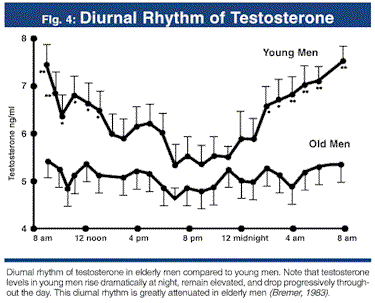Last updated: June 26, 2024
5 mins read
What is testosterone?
Testosterone is the primary male hormone responsible for sexual health and development, in addition to other physiological functions. Having proper levels of testosterone is essential not only for males but for females, too. An imbalance of testosterone can have negative effects on both reproductive and overall health.
While testosterone is a hormone primarily associated with male development and reproductive function, it is also present in females. In women, testosterone plays a role in maintaining muscle mass, bone density, libido, and overall well-being.
Why is testosterone important?
SiPhox Health includes testosterone in our Foundation Panel for men and Fertility+ Panel for women to help monitor and manage testosterone levels. In men, testosterone regulates sex drive (libido), bone mass, fat distribution, muscle mass and strength, and the production of red blood cells and sperm. Symptoms of low testosterone may include reduced sex drive, erectile dysfunction, low sperm count, and other emotional and physiological changes.
While testosterone levels are typically much lower in females compared to males, they still play a vital role in various physiological processes. Fluctuations or abnormalities in female testosterone levels can impact reproductive health, sexual function, mood, and overall health. Testosterone is essential for maintaining optimal health and well-being in females. Proper testosterone levels contribute to reproductive health, libido, muscle strength, bone density, mood regulation, and overall vitality.
How can I better understand my testosterone levels?
Free and total testosterone are two different measurements. Total testosterone quantifies, as the name suggests, the overall quantity of testosterone including molecules that are both free (unbound) and bound to proteins (mainly SHBG and albumin). On the other hand, a measure of free testosterone does not measure molecules that are bound to proteins. This is an important measurement as free testosterone is generally more bioactive than bound testosterone. People who may be experiencing symptoms of low testosterone but have normal levels of total testosterone may be advised to take a free testosterone test.
Males:
Free and total testosterone ranges vary based on many factors, including age. The Cincinnati Children’s Hospital released a list of normal free and total testosterone ranges in males by age.
- Age 20-49: 3.0 – 10.8 ng/mL
- Age 40-60: 3.0 – 8.9 ng/mL
- Age 60+: 3.0 – 7.2 ng/mL
Normal free testosterone in males:
- Age 18+: 0.047 – 0.244 ng/mL
According to the Cleveland Clinic, the American Urology Association (AUA) considers low total testosterone to be < 3.0 ng/mL for adult males. However, some researchers and healthcare providers believe that no more than 2.50 ng/mL should be indicative of low testosterone.
Testosterone, like many hormones, follows a diurnal rhythm, peaking in the morning and dipping in the early evening. Peak secretion occurs between 7 and 10 a.m., which is why testing testosterone levels in the morning helps to limit variations, particularly in younger men.
Prinz, Patricia & Bremner, William & Vitiello, Michael. (1983). Loss of Circadian Rhythmicity in Blood Testosterone Levels with Aging in Normal Men*. J Clin Endocrinol Metab. 56. 10.1210/jcem-56-6-1278.
Low testosterone is more likely to affect those who are older, obese, have type 2 diabetes or HIV/AIDS, have sleep apnea, or have chronic conditions such as kidney or liver dysfunction. Since abnormally high or low testosterone levels may indicate problems with the testicles, pituitary gland, or hypothalamus, it is important to consult with your physician if you are concerned about your levels.
Females:
According to the American Board of Internal Medicine:
Normal serum testosterone levels in females
- 0.18 – 0.54 ng/mL.
It’s important to note that different labs have slight variations on the normal reference range.
Higher than normal testosterone levels in females, known as hyperandrogenism, may indicate conditions such as polycystic ovary syndrome (PCOS), adrenal disorders, ovarian tumors, or certain medications. Further evaluation, including additional tests and medical history assessment, may be necessary to determine the underlying cause. Lower than normal testosterone levels in females may result from conditions such as primary ovarian insufficiency (early menopause), adrenal insufficiency, pituitary disorders, or certain medications. Additional testing and medical evaluation are essential to identify the underlying cause and determine appropriate management.
How can I maintain optimal testosterone levels?
If you need to maintain or adjust your testosterone levels, consider the following strategies:
Dietary Changes: Consuming fenugreek seed extract, ashwagandha roots and leaves, or honey can help to increase lower testosterone levels. Additionally, research suggests that macronutrient, vitamin, and mineral intake can impact testosterone synthesis. Adequate zinc intake, for example, has been shown to regulate both elevated and decreased hormone levels, including testosterone.
Lifestyle Changes: Avoiding chronic stressors, getting more and higher-quality sleep, and lowering abdominal fat percentage through a healthy regimen can help in improving testosterone levels. Additionally, engaging in regular physical activity, including strength training and aerobic exercise, can help support hormone balance, muscle strength, and overall well-being. Practicing stress-reducing techniques such as mindfulness, meditation, deep breathing exercises, and adequate sleep can also help support hormone balance and overall health.
Supplementation: Consuming saw palmetto or boron supplements can aid in regulating testosterone levels.
Where can I learn more?
- Andrew Huberman has a masterclass on testosterone for males.
- Harvard Medical School – Testosterone: What It Is and How It Affects Your Health
- Cleveland Clinic – Testosterone
DISCLAIMER: IF YOU ARE CONCERNED WITH ANY OF YOUR RESULTS, PLEASE CONSULT WITH YOUR PHYSICIAN.



